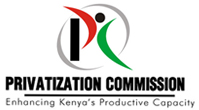The core function of the Privatization Commission is the implementation of Privatizations transactions. The Commission also interacts extensively with the market as it procures support services required to implement the transactions. Transactions and procurement processes are vulnerable to corrupt practices. In this respect, the Commission recognizes that corrupt practices can adversely affect its reputation and resources and its responsibility to the Kenya Public to implement transactions transparently and obtain fair value for assets being privatized. The Commission also recognizes that all its other areas of operations are also potential risk areas with respect to corrupt practices. The Commission has promulgated an Anti-corruption Policy to supplement legal provisions and other government initiatives for fighting and preventing corruption in Kenya. The policy seeks to provide a framework for efficient and effective detection and prevention of corruption at the workplace.
- Policy Statement
Privatization Commission believes that good governance is fundamental to the economic and social development process of the country, and hence is inherently linked to its objectives and mandate of implementing the privatization programme. The Commission also believes that existence of a good regulatory framework provides a sound structure for the management of the Commission’s resources. In this respect, the Commission’s good governance approach is linked to its core values of:
- Accountability
- Transparency
- Integrity
- Professionalism
- Fairness
- Legislative And Administrative Requirements /Content
This policy shall be read together with other government legislations and other papers that include; the Anti-Corruption and Economic Crimes Act, 2003; Public Officer Ethics Act, 2003; Public Procurement and Disposal Act, 2005; and the Government Financial Management Act, 2004 and the Performance Contract
